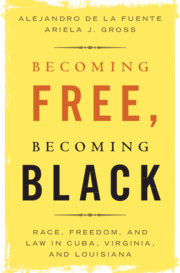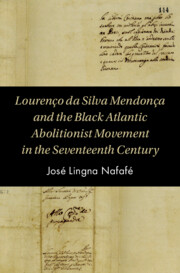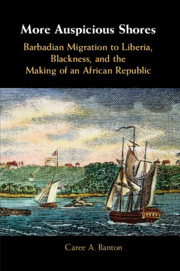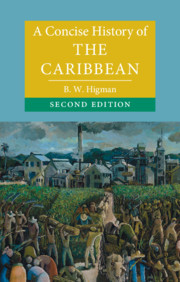Becoming Free, Becoming Black
Race, Freedom, and Law in Cuba, Virginia, and Louisiana
$19.95 (T)
Part of Studies in Legal History
- Authors:
- Alejandro de la Fuente, Harvard University, Massachusetts
- Ariela J. Gross, University of Southern California
- Date Published: December 2021
- availability: Available
- format: Paperback
- isbn: 9781108468145
$
19.95
(T)
Paperback
Other available formats:
Hardback, eBook
Looking for an examination copy?
If you are interested in the title for your course we can consider offering an examination copy. To register your interest please contact collegesales@cambridge.org providing details of the course you are teaching.
-
How did Africans become 'blacks' in the Americas? Becoming Free, Becoming Black tells the story of enslaved and free people of color who used the law to claim freedom and citizenship for themselves and their loved ones. Their communities challenged slaveholders' efforts to make blackness synonymous with slavery. Looking closely at three slave societies - Cuba, Virginia, and Louisiana - Alejandro de la Fuente and Ariela J. Gross demonstrate that the law of freedom - not slavery - established the meaning of blackness in law. Contests over freedom determined whether and how it was possible to move from slave to free status, and whether claims to citizenship would be tied to racial identity. Laws regulating the lives and institutions of free people of color created the boundaries between black and white, the rights reserved to white people, and the degradations imposed only on black people.
Read more- Examines the development of the legal regimes of slavery and race in Cuba, Virginia, and Louisiana from the sixteenth century to the dawn of the Civil War
- Demonstrates that the law of freedom, not slavery, determined the way race developed over time
- Draws on a variety of primary sources, including local court records, original trial records of freedom suits, legislative cases, and petitions
Awards
- Winner, 2021 John Phillip Reid Book Award, American Society for Legal History
Reviews & endorsements
'At a moment when ‘Send Them Back’ has reemerged as a nativist rallying cry, Becoming Free, Becoming Black is a brilliantly lucid guide to the deep history of how race and ethnic origin came to be potent ciphers for civic belonging. … De la Fuente and Gross show that brutality lay not merely in the imposition of slavery, but in the creation of racial regimes ranking black bodies even once freed from bondage. If enslavement is construed as an external political constraint, the project of freedom becomes focused on unshackling bodies from those confines. But if white means free and black means slave, then political status is embodied, innate and inescapable. … To this day, the legacy of free-but-not-full-citizen delimits quietly powerful hierarchies in our varying capacities to travel, vote, mix socially, run a business, hold public office, and intermarry. This indispensable book shows how knowing the past might aid us to intelligently reform our future.' Patricia J. Williams, Columnist, The Nation Magazine
See more reviews'In this incisive and spell-binding study, Alejandro de la Fuente and Ariela Gross meticulously investigate the archives of the ‘legal regimes of slavery and race’ in the culturally disparate locations of Cuba, Louisiana, and Virginia, thus exposing the differences and similarities between Spanish, French, and English approaches to manumission and interracial relationships. In addition, the authors brilliantly focus on the bottom up efforts of the enslaved to gain freedom, thus exposing how these ‘unpredictable twists and turns’ established the meaning of blackness in law. Not only an important legal analysis, Becoming Free, Becoming Black tells many fascinating stories of heroic efforts to attain freedom through legal regimes.' Henry Louis Gates, Jr, Alphonse Fletcher University Professor, Harvard University
'Becoming Free, Becoming Black is a brilliant study of the making of race in the New World. Deeply researched, insightful, and smoothly written, this book is a major contribution to the scholarly literature on slavery and the way it shaped, and was shaped by, attitudes about people of African descent.' Annette Gordon-Reed, Charles Warren Professor of American Legal History, Harvard University, and author of The Hemingses of Monticello: An American Family
'In Cuba of 1860, many persons of color who purchased their freedom lived alongside slaves; while In Louisiana and Virginia free people of color had almost disappeared, and to be black was to be enslaved. The difference was in the law and custom regulating freedom - law made by many hands, including those of slaves themselves. This book, based on meticulous archival research and brilliantly reasoned and written, is comparative legal history at its finest.' Robert W. Gordon, Stanford University
'To what can we attribute the distinct racial ideologies that emerged in different slaveholding societies in the Americas? In this rich and innovative comparative study, Ariela Gross and Alejandro de la Fuente emphasize the role of the emergence of communities of free persons of African descent, and their evolution over time. Although elites in all three societies sought to attach sharp social distinctions to color, the authors find that ‘the association between blackness and enslavement, whiteness and freedom, remained less strict and precise in Cuba than in Virginia and Louisiana.’ As slavery itself was abolished, these prior differences laid the groundwork for divergent experiences of access to the rights of citizenship. This is a provocative and important book.' Rebecca J. Scott, Charles Gibson Distinguished University Professor of History and Professor of Law, University of Michigan
'Becoming Free, Becoming Black provides crucial insights into the ways that conceptions of race and power varied across the Americas in the era when slavery was at its most widespread. It is a valuable window on the ways that the system maintained itself, and on the resistance that, although often unsuccessful, showed the persistence of the will to resist under even the most horrendous conditions.' John Foster, Souciant Magazine
‘… this book contributes greatly to a comparative understanding of the African diaspora and the complexities of both colonial experiences and post-emancipation societies.’ G. de Laforcade, Choice
‘Becoming Free, Becoming Black is a beautifully written manuscript based on both archival research and extensive bibliographic discussion.’ Keila Grinberg, Hispanic American Historical Review
‘De la Fuente and Gross have provided a useful handbook for historians of all three regions who seek to understand the law's effect on regimes of racial exploitation – and the worlds that people of color constructed through and under it.’ Robert Colby, Journal of Southern History
'… set to become a classic study of law in the Americas in the age of enslavement and emancipation… This comparative history sets out to change our understanding of the law by successfully taking on a formidable task - to account for the role of the law in the trajectory of racial ideologies across the two Americas.' Adriana Chira, ReVista
‘… Becoming Free, Becoming Black is a major work of historiographical synthesis and a rigorous work of original historical investigation.’ Sue Peabody, Journal of Interdisciplinary History
‘Becoming Free, Becoming Black certainly stands as required reading for scholars of history of law and the social history of slavery in the Americas. The solid research in primary sources, combined with an original argument, among other qualities, make the book a reference of excellence on the historiographical debate on racism and law - both past and present.’
Customer reviews
Not yet reviewed
Be the first to review
Review was not posted due to profanity
×Product details
- Date Published: December 2021
- format: Paperback
- isbn: 9781108468145
- length: 295 pages
- dimensions: 230 x 151 x 18 mm
- weight: 0.46kg
- availability: Available
Table of Contents
Introduction
1. 'A Negro and by consequence an alien': local regulations and the making of race, 1500s–1700s
2. The 'inconvenience” of black freedom: manumission, 1500s–1700s
3. 'The natural right of all mankind': claiming freedom in the age of revolution, 1760s–1830
4. 'Rules … for their expulsion': foreclosing freedom, 1830s–1860
5. 'Not of the same blood': policing racial boundaries, 1830s–1860
Conclusion: 'Home-born citizens: the significance of free people of color.
Sorry, this resource is locked
Please register or sign in to request access. If you are having problems accessing these resources please email lecturers@cambridge.org
Register Sign in» Proceed
You are now leaving the Cambridge University Press website. Your eBook purchase and download will be completed by our partner www.ebooks.com. Please see the permission section of the www.ebooks.com catalogue page for details of the print & copy limits on our eBooks.
Continue ×Are you sure you want to delete your account?
This cannot be undone.
Thank you for your feedback which will help us improve our service.
If you requested a response, we will make sure to get back to you shortly.
×





